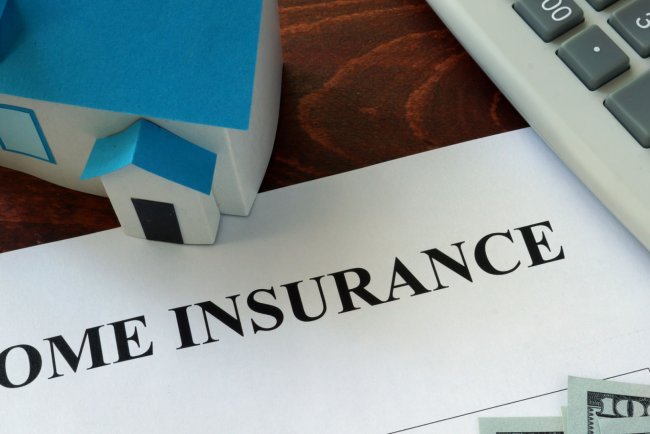What Happens to Homeowners Insurance When Someone Dies?
By promptly notifying the insurance company, reviewing the policy, and addressing legal and administrative considerations, you can effectively manage the insurance policy and maintain adequate coverage for the property.

The death of a homeowner can bring significant changes to the management of their property, including how their homeowners insurance is handled. Understanding the implications and necessary actions can help ensure that the property remains protected and that any potential issues are managed smoothly. This guide explores what happens to homeowners insurance when someone dies and provides practical advice on how to navigate these changes.
Immediate Actions Following the Death
Notification of the Insurance Company
When a homeowner passes away, the first step is to notify their homeowners insurance provider. This notification should be done as soon as possible to inform the insurer of the policyholder’s death. The insurance company will provide guidance on the next steps and any documentation required.
Reviewing the Policy
Review the existing homeowners insurance policy to understand its terms, coverage, and any clauses related to the death of the insured. This review will help in understanding how the policy may be affected and what changes may need to be made.
Securing the Property
In the immediate aftermath of the homeowner’s death, it is crucial to secure the property. This includes making sure that the property is locked, securing valuables, and ensuring that no one unauthorized has access. This step is important for both the safety of the property and the protection of the insurance claim.
Changes in Homeowners Insurance Coverage
Continuing Coverage
In many cases, homeowners insurance coverage will continue temporarily after the policyholder’s death. The insurance policy generally remains in effect until the policy is officially changed or canceled. However, the specific duration of continued coverage and any conditions may vary depending on the insurer.
Policy Beneficiaries
If the policyholder named a beneficiary or a person to inherit the policy, the insurance company will need to be informed of this designation. The beneficiary will usually be the new point of contact for the insurance policy and may need to update or transfer the policy into their name.
Policy Transfer
The process for transferring a homeowners insurance policy to a new owner or beneficiary can vary. The new owner or beneficiary will typically need to contact the insurance company to complete the transfer process. This may involve providing proof of the policyholder’s death, proof of inheritance, or other legal documents.
Legal and Administrative Considerations
Estate Settlement
The handling of the homeowners insurance policy is often part of the broader estate settlement process. The executor or personal representative of the deceased’s estate will typically handle insurance matters, including communicating with the insurance company and managing any necessary changes to the policy.
Probate Process
In some cases, the property may need to go through the probate process, during which a court determines the distribution of the deceased’s assets. The homeowners insurance policy may need to be reviewed as part of this process to ensure that the property remains adequately covered during probate.
Property Transfer
If the property is to be transferred to a new owner, such as a family member or heir, the new owner will need to arrange for their own homeowners insurance policy. The existing policy may be canceled or modified once the property ownership changes. The new owner should ensure that they have coverage in place to avoid any gaps in protection.
Claims and Coverage Issues
Filing a Claim
If there is a need to file a claim for damage or loss that occurred before or after the homeowner’s death, the executor or representative of the estate will typically handle the claim. It’s important to provide the insurance company with all necessary documentation, including proof of death and any relevant details about the claim.
Coverage Limits and Exclusions
Review the coverage limits and exclusions of the policy to understand what is covered and what is not. This review is essential to ensure that any claims are handled appropriately and that there are no unexpected issues with coverage.
Premium Payments
The responsibility for paying the insurance premiums may fall to the estate or the new owner of the property. It is crucial to ensure that premiums are paid on time to avoid lapses in coverage. If the property is sold or transferred, the premiums may need to be adjusted accordingly.
Practical Tips for Managing Homeowners Insurance After a Death
Communicate with the Insurance Company
Maintaining open communication with the insurance company is key. Keep them informed of any changes related to the property and ensure that all required documentation is submitted promptly. This will help in managing the policy effectively and addressing any issues that may arise.
Seek Professional Advice
Consider seeking professional advice from an attorney or financial advisor who specializes in estate planning. They can provide guidance on managing insurance policies, handling estate matters, and ensuring that all legal and financial requirements are met.
Update Records
Ensure that all records related to the insurance policy and property ownership are updated accordingly. This includes updating beneficiary information, property records, and insurance documentation to reflect any changes.
Review Coverage Needs
Review the coverage needs of the property to ensure that they align with current circumstances. This may involve adjusting coverage limits, adding endorsements, or making other changes to the policy based on the new owner’s needs.
Special Considerations
Joint Policies
If the homeowners insurance policy was held jointly by the deceased and another person, such as a spouse, the surviving policyholder should contact the insurance company to update the policy. The policy may continue under the surviving policyholder’s name, but it’s important to confirm and make any necessary adjustments.
Insurance for Rental Properties
If the property was a rental property, the management of the insurance policy may involve additional considerations. The new owner or property manager will need to address any changes related to the rental insurance and ensure that coverage remains in place.
Mortgage and Insurance
If the deceased had a mortgage on the property, the mortgage lender may have specific requirements related to homeowners insurance. The new owner or estate representative should communicate with the lender to ensure that insurance requirements are met and that the mortgage is managed properly.
Navigating the complexities of homeowners insurance after the death of a policyholder can be challenging, but understanding the necessary steps can help ensure a smooth transition. By promptly notifying the insurance company, reviewing the policy, and addressing legal and administrative considerations, you can effectively manage the insurance policy and maintain adequate coverage for the property.
Whether you are an executor, a beneficiary, or a new property owner, staying informed and proactive will help you manage the insurance policy effectively and address any issues that may arise. Seeking professional advice and maintaining open communication with the insurance company will further facilitate the process and ensure that the property remains protected.
Frequently Asked Questions (FAQs)
1. What should I do immediately after a homeowner passes away in relation to their insurance policy?
Immediately notify the homeowner’s insurance company of their death. This informs the insurer of the situation and triggers the process for handling the policy. Secure the property to prevent any unauthorized access and review the existing insurance policy to understand its terms and coverage.
2. Will the homeowners insurance policy continue to be valid after the policyholder’s death?
In many cases, the homeowners insurance policy will remain in effect temporarily after the policyholder’s death. However, it is important to contact the insurance company to confirm this and to discuss the necessary steps for transferring or updating the policy.
3. Who should I contact to handle the homeowners insurance policy after someone dies?
The executor or personal representative of the deceased’s estate is typically responsible for handling insurance matters. They should communicate with the insurance company, provide necessary documentation, and manage any changes or claims related to the policy.
4. How do I transfer the homeowners insurance policy to a new owner or beneficiary?
To transfer the policy, the new owner or beneficiary must contact the insurance company to update the policy details. This usually involves providing proof of the policyholder’s death, proof of inheritance, and other legal documents as required by the insurer.
5. What happens to any claims made after the policyholder’s death?
Claims can still be made after the policyholder’s death, but the executor or representative of the estate typically handles them. It’s important to provide the insurance company with all necessary documentation, including proof of death and details related to the claim.
6. How does the death of the policyholder affect premium payments?
Premium payments need to continue to avoid lapses in coverage. The responsibility for paying premiums may fall to the estate or the new owner of the property. Ensure that premiums are paid on time and that any adjustments to the policy are made accordingly.
7. What should I consider if the property goes through the probate process?
During probate, the property may be evaluated and managed by the court. Ensure that the homeowners insurance policy is reviewed as part of the estate settlement process to maintain adequate coverage and address any potential issues related to the property.
8. Are there any special considerations for joint homeowners insurance policies?
If the insurance policy was held jointly, such as with a spouse, the surviving policyholder should contact the insurance company to update the policy. The policy may continue under the surviving policyholder’s name, but it’s important to confirm and make necessary adjustments.
9. What if the property was a rental property?
If the property was a rental, the new owner or property manager will need to address any changes related to rental insurance. Ensure that the insurance policy is updated to reflect the new ownership and that coverage remains appropriate for rental properties.
10. How can I ensure that the homeowners insurance policy is managed properly during the transition?
Maintain open communication with the insurance company, seek professional advice if needed, and keep all records updated. This will help manage the policy effectively and address any issues that arise during the transition of ownership or policy management.
11. What documentation is needed to transfer or update the homeowners insurance policy?
Typically, you will need to provide proof of the policyholder’s death (such as a death certificate), proof of inheritance or property transfer, and any other legal documents required by the insurer. The specific requirements may vary depending on the insurance company.
12. Can I make changes to the policy coverage after the policyholder’s death?
Yes, the new owner or beneficiary can review and adjust the policy coverage as needed. This may involve changing coverage limits, adding endorsements, or making other modifications to ensure the policy meets current needs.
13. What happens if the insurance policy lapses due to non-payment of premiums?
If the policy lapses, the property may be left uninsured, which can lead to significant risks. It is crucial to ensure that premiums are paid on time and to address any potential lapses promptly to maintain coverage.
What's Your Reaction?



















